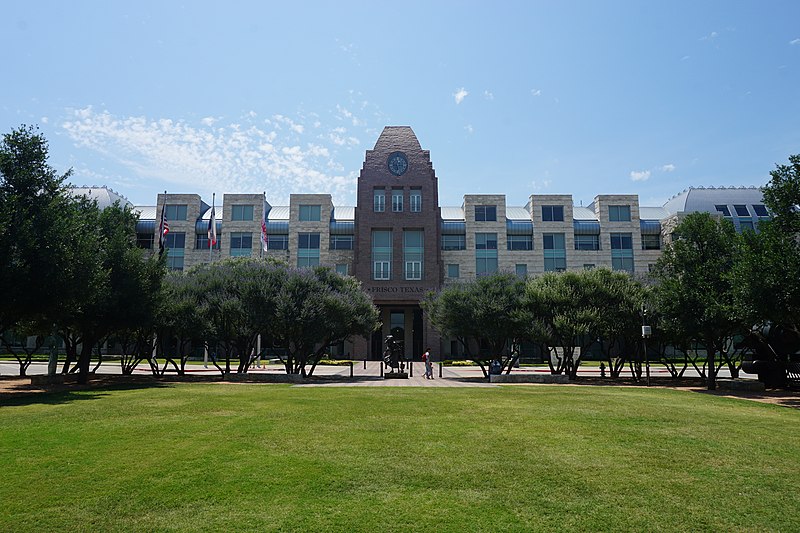In the sprawling suburbs of North Texas, Frisco stands out not just for its rapid growth—once earning it the title of the fastest-growing city in the U.S.—but for something far more unique: its ambition to become an “innovation lab.” Here, under the guidance of Chief Innovation Officer Jason Cooley, the city has cultivated an ecosystem where emerging technologies are tested, refined, and integrated into everyday life. For economic development professionals across the country, Frisco offers a compelling case study in how to harness innovation for tangible community impact.
Cooley, who works under the city manager at Frisco’s West Pearson office, describes the city’s approach with a refreshing clarity: “When we speak of the concept of an innovation lab, we’re saying we’re willing and able to take pilot projects that come to us if they fit our profile.” This isn’t about chasing the nebulous label of a “smart city” for its own sake. Instead, Frisco zeroes in on projects that promise real benefits for its residents and employees, creating a model that balances ambition with pragmatism.
Take Wing, the autonomous drone delivery service, as a prime example. Frisco is the only U.S. city with a population over 100,000 actively delivering goods—like Blue Bell Ice Cream—to residents’ doorsteps via drones. Launched as a pilot in partnership with Walgreens at Frisco Station in 2021, Wing can deliver items up to 3.1 pounds in six minutes or less. Residents track their orders on an app, watching as a drone descends to a designated landing zone on their property. What began as a test has evolved into a full-fledged resource, with Cooley eyeing expansion to other parts of the city. “The pilots are here for testing,” he explains. “We connect the data, give feedback, and assess public approval. If it works, we move to the next phase.”
This organic innovation—projects that grow naturally from community needs—sets Frisco apart. Another success story is Drive.ai, a fully autonomous shuttle service that once ferried passengers between Hall Office Park and restaurants at The Star, a popular mixed-use development. Though the pilot has since concluded, it demonstrated Frisco’s willingness to experiment with cutting-edge mobility solutions. Today, the city is piloting a FedEx last-mile delivery robot, further expanding its robotics footprint.
Frisco’s ecosystem thrives because it doesn’t wait for innovation to knock—it proactively builds the conditions for it. The city’s early adoption of 5G in 2018 drew attention from tech companies eager to test their wares in a forward-thinking environment. By 2019, Cooley’s role was created to serve as a “clearing house” for these opportunities, aligning city resources to bring ideas to life. “I’ve been fortunate that the majority of things we pilot are from individuals seeking out Frisco,” he says, a testament to the city’s growing reputation.
But innovation in Frisco isn’t just about flashy tech—it’s also about internal transformation. Enter Frisco Lean, the city’s homegrown take on Lean Six Sigma, a methodology for process improvement. Led by trainer Elizabeth Chase, this in-house program offers training to all city employees, encouraging them to think outside the box about operational efficiency. “It’s an open way of thinking about how we can be more productive,” Cooley says. The goal? Equip staff to spot inefficiencies and propose solutions, with improvements rippling across departments. From streamlining permitting processes to optimizing public works, Frisco Lean ensures the city’s internal machinery keeps pace with its external ambitions.
Communication is another pillar of Frisco’s success. Before Wing took flight, the city held town halls, joined parades, and met with residents to demystify the technology. “The communications piece on the front end is critical,” Cooley notes. This transparency builds trust, ensuring residents aren’t startled when a drone buzzes overhead or a robot rolls down their street.
Frisco’s innovation ecosystem also benefits from its sophisticated populace and strategic partnerships. The Frisco Economic Development Corporation (FEDC) plays a key role, attracting startups and corporations alike. In a Q&A with the FEDC, Cooley emphasized how the city’s profile—affluent, educated, and tech-savvy—makes it an ideal testing ground. Meanwhile, developments like Frisco Station and The Star provide physical hubs where innovation can take root, as seen in the recent groundbreaking of a mixed-use project covered by Fox 4 News.
Looking ahead, Cooley envisions robotics in the city’s new 150,000-square-foot library, set to open in February 2023, assisting with book delivery and wayfinding—building on a pilot at the current facility. It’s a small but telling example of how Frisco integrates innovation into public services.
For economic development professionals, Frisco’s takeaways are clear: success hinges on aligning projects with community needs, fostering internal creativity, and communicating effectively with stakeholders. “There are other smart cities that are progressive,” Cooley acknowledges, “but we’re trying to do it our own way.” That way—a blend of organic growth, internal empowerment, and strategic risk-taking—offers a blueprint for cities aiming to turn innovation into action.
Sidebar: Frisco’s Innovation Highlights
- Wing Drone Delivery: Frisco is the only U.S. city over 100,000 in population delivering goods (up to 3.1 pounds) via autonomous drones in six minutes or less, partnering with Walgreens and expanding from a pilot to a permanent service.
- Frisco Lean: A custom Lean Six Sigma program training all city employees to improve processes, led by in-house trainer Elizabeth Chase, fostering a culture of internal innovation.
- Drive.ai Shuttle: A past pilot of autonomous shuttles connecting Hall Office Park to The Star, showcasing Frisco’s early embrace of self-driving tech.
- 5G Adoption: Deployed in 2018, making Frisco a pioneer and attracting tech firms eager to pilot projects.
- Library Robotics: Upcoming 150,000-square-foot library (opening February 2023) will feature robotics for book delivery and wayfinding, building on a current pilot.

